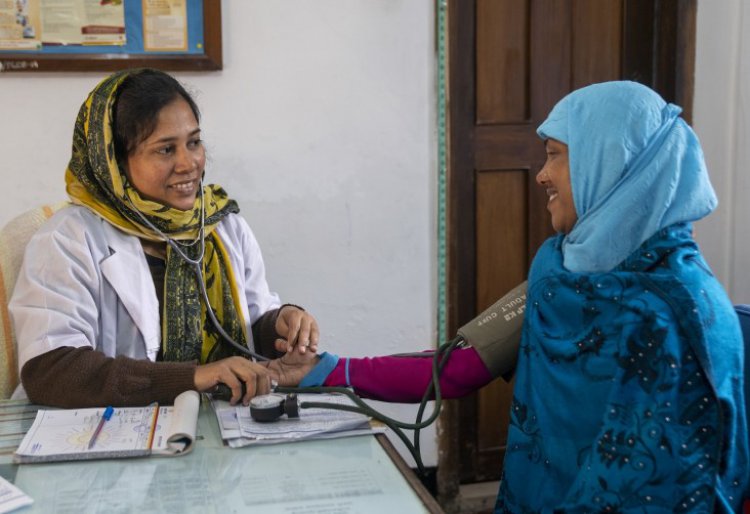
Over the past five decades, Bangladesh, with support from USAID, has reduced maternal and child mortality by two-thirds. Thanks to USAID’s flagship family planning programs, the average number of children a woman gives birth to has decreased from over six to about two. Although Bangladesh has had great success in reducing maternal and under-five mortality, declines have stalled in recent years. Despite notable improvements in nutritional status, almost one third of children remain stunted. Half of all births currently take place in health facilities, compared to 17 percent just a decade ago, but health facilities are not fully prepared to provide quality health services. Around 62 percent of currently married couples use contraceptives to delay or limit childbearing. Yet, 12 percent of currently married women under age 50 say they would like to use contraceptives but do not have access to them. While the age of marriage is slowly increasing, almost 60 percent of Bangladeshi women marry before the legal age of 18 and 28 percent begin childbearing before the legal age. The United Nations designated Bangladesh as one of 30 countries with the highest tuberculosis (TB) burden. Bangladesh accounts for 3.6 percent of the global burden of TB, and is one of USAID’s seven TB focus countries. The disease remains one of the top causes of death, and every year more than 360,000 people get TB and more than 36,000 die.
USAID has a $120 million FY2021 health budget, including a $51 million COVID response and $69 million for a broad range of activities to improve maternal, neonatal, and child health; expand family planning and reproductive health; reduce malnutrition; reduce the burden of tuberculosis; prevent and control infectious disease outbreaks; and strengthen health systems to improve the affordability, equity, and quality of services across the country in the public and private sectors. Over the past 20 years, USAID has invested over $1 billion to improve health outcomes for Bangladeshis, and our assistance continues to support the Government of Bangladesh (GOB) health priorities under its $14 billion Health, Population and Nutrition Sector Program 2017-2023.